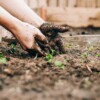Read part I of the interview here
Sometimes, Asian and Asian American churches have remained silent on the issue of racism. Possible reasons for this reluctance to engage might be due to Asian cultural values (e.g., maintaining social harmony, restraining of emotions), an internalized model minority stereotype, and a lack of racial socialization efforts. What advice would you give to leaders and educators who are seeking ways to increase awareness about anti-Asian racism in Asian and Asian American church settings?
I don’t think they need a greater awareness; they know it’s happening. I think they need to have a different theology to understand that this racism is a pastoral issue, it’s a prophetic issue, it’s a theological issue. A lot of times, they’ve been largely silent on racism because they don’t think social issues are part of the Gospel. They don’t see that God has come to redeem, not only individual souls, but also society or our relationships with others. And so, the problem of Asian American churches not addressing this isn’t one of cultural silence, as much as it is their theological orientation to focus on other aspects of the Gospel.
If they’re not going to address it theologically that social justice issues are part of God’s call, they should be able to see it in terms of our elderly are really fearful at the moment. We’re the racial group with the highest rate of mental health distress. If they want to be good pastors, they have to recognize the impact of the societal racism on their members. And especially, their elderly members who are afraid to go out, who don’t send their kids to the classroom. This is actually a live, personally impactful issue facing their church members, as much as anything else that they need to address.
I think it’s the major pastoral issue of the church right now. How do you care for people who are traumatized? How do you find healing from that? How do you find comfort in that? And if they’re not addressing it, then it seems like, “Wow, they’re not feeling the pulse of their members,” because if you look at polls, 45% of Asian Americans have experienced direct racism. We’re the racial group least likely to send our kids back to school. Almost everybody I know tells their elderly to stay indoors or be careful. When I hear from the elderly themselves, they’re all super concerned. So, if pastors aren’t addressing the issue, then they don’t seem to know their flock and what their flock needs at the moment.
I think this is God’s way of teaching Asian Americans empathy and pain. This is for me, what I think is a great moment for the Asian American church. Right now, we’re under a lot of siege, a lot of fear, a lot of distress, because people died. People shoved our grandparents, and they’ve been killed. And we have to actually feel that pain, because if we go into fight or flight mode, the fight mode of just arming ourselves, that’s just going to perpetuate the cycle of violence. If we go into fight mode, we just become racists like everybody else. We become like the world. If we go into flight mode and just retreat and just keep our kids from going to school or keep our elderly inside, we’re not dealing with the issue. And what happens then is it’s we know it’s like trauma, it’s like being abused. You internalize it, and it’s going to come out in other ways. It’s going to come out in anger when you don’t expect it. You’re going to get triggered if you don’t deal with it if you go into fight or flight mode.
What we really need, especially as Christians, is to get healed from the racism, to get healed from the trauma, from the sins perpetrated against us. Otherwise, we’re going to just become oppressors ourselves. We’re just going to become racist ourselves. And for me, if Christians can be healed of racism, if we could forgive others after feeling the pain – healed people can heal others. And I think Asian American Christians, especially, can become the racial healers of America. If we can forgive others, that would be a total blessing to others to show a model of forgiveness, of restorative justice, of healing to others.
This is a great lesson that the Asian American church can gain from and can be a witness for. If we can be healed to say, “Yeah, we’ve experienced racism, but we’re going to extend grace to the world,” that would be a real light. If we could learn how to be empathetic and then say, “Wow, now that we’ve been racially profiled, we understand how others are profiled as dangerous or are threats,” and we could better address mass incarceration. Or we see how other people are perceived as threats, so we could understand mass detention. Or we see how other people are perceived as threats, so we could understand mass bans. Asian Americans then could develop empathy, and they could be healed. They could be a light to the world in God’s power to redeem us.
That’s what I want for myself. I want to see God’s healing in this moment, so that I could see God’s grace and power is sufficient in my weakness. That’s my hope. That’s actually my only hope because I know in my own abilities – I’m pretty weak. I’m pretty broken myself. I’m pretty angry at this moment. I’m pretty distressed and hopeless. And I really do need the power of God at this moment.
So, if you’re a pastor, take this as an opportunity to see God’s movement in the world. Let’s see the Holy Spirit unite, redeem, and transform us. It’s when we’re weak, and I think we’re weak now, that God’s grace is sufficient. You miss it if you don’t recognize it. So, I see this as God’s movement for us.
Obviously anti-Asian racism is not confined to the period of the COVID-19 pandemic. How do you encourage Christian communities to keep the conversation going?
I think of racism as the Eye of Sauron. At first, the attention is on African Americans and Black Lives Matter. Then, it may turn to South Asians, Islamophobia, or the Latinx community with detention. And then it could turn to Palestinians. And so now it’s on Asians. I think Asians need to feel the pain at the moment, so that we could become more empathetic, so that we can get healed, and then we could offer healing to others. So, the Asian American community itself should keep the conversation going, because if we get redeemed from this moment, we could help heal others.
It’s not a matter of just keeping the conversation going, but it’s a matter of being instruments of grace and truth to others, and to be healers of others. We don’t just talk about it, but we go out and share the gifts that we’ve been given to others. That’s how I see it continuing. We’re in this battle against principalities and powers, and so we continue the battle against Sauron. Maybe we’re the Elves or the Dwarves, and we have to come to the aid of humans or Hobbits. We’re all in this together against Sauron, and so at this moment, we need our allies in the fellowship, and later on, we should continue to be allies in the fellowship.
The other thing is, in support of the Asian American community, not only is this a moment to develop empathy and healing, but it’s also a moment to develop our own critical consciousness and awareness, and our own organizational capacity. So, I think if we strengthen efforts like the Asian American Christian Collaborative as a network, then maybe it will continue the efforts. And so, we build organizations and institutions; that’s how you continue social movements or religious movements.
And people writing and reflecting about racism is important. This could be a moment of reflection for a long time of the Asian Americans’ place in society. How do we deal with our anti-Blackness? How do we deal with our pursuit of Whiteness? How do we deal with our perpetual foreigner status? There’s a lot of theological reflection that can be done to keep the movement going. And whenever racism pops up, we have to address it.
So, if we really want to bring justice to the world, it’s a long-term effort. You must be prepared for the long haul, and not think it’s just going to go away. But if you put your head in the sand and yeah, even if when the pandemic is over, it’ll still be there. And it’ll pop up again in a different situation, when another pandemic comes, or there’s another war. So, we have to be educating people with ethnic studies. We need to expand our civil rights protections. We have to develop restorative justice to break the cycle of violence.
























Dear Dr. Kim and Dr. Jeung,
Thank you for your excellent article on racial trauma and response, of which I read the second part today. I sympathize with the pain of Asian Americans and Pacific Islanders due to US racism and hate crimes. Are you familiar with the Trauma Healing material now made available through the American Bible Society? It was developed by Summer Institute of Linguistics / Wycliffe Bible Translators staff in Africa (my colleagues) in direct response to genocidal ethnic violence there. Leaders are trained to facilitate healing through workshops that included guided focus on trauma and on God’s response through focus on relevant Scripture. It results in real healing. The leader training is now available internationally, and online during Covid. More information here:
https://american.bible/bible-based-trauma-healing#:~:text=Through%20Bible%2Dbased%20trauma%20healing,painful%20memories%20into%20hopeful%20futures
With prayer for God’s blessing on your work, your family and community, and the expansion of his influence in our world.
Susan Hochstetler (near Charlotte, NC)